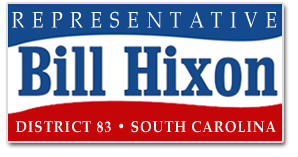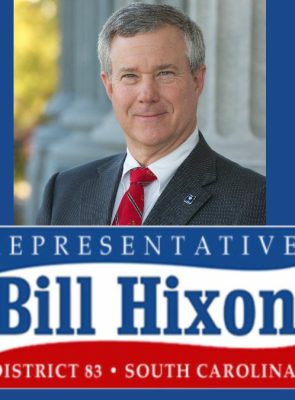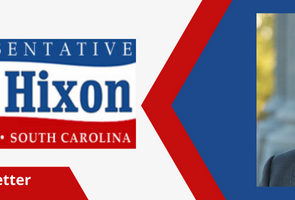Dear Friends,
Several people have asked me, if you have a concealed weapon permit in South Carolina, can you carry a concealed weapon in Georgia? And the answer is, probably not, because you would need a non-resident license in a state that reciprocates with Georgia. Many of my friends living in Georgia often ask me, can I get a non-resident concealed weapon permit in South Carolina? Right now to get a non-resident permit in South Carolina, you must pay property taxes on real property, such as a house; this does not include cars.
Even though you can get an non-resident gun permit by taking our test for legals and shooting, a reciprocal agreement between the states is still missing. The reciprocal agreement is where the rubber meets the road and SC and GA should have something in the working. Seventeen states have what is called a reciprocal agreement with SC, making their permits valid in this state. All 17 of these reciprocal states require training before you get your permit; however, GA requires no training to get your permit. GA is the only state that touches SC that does not honor the permit. The same goes the other way too. GA has reciprocal agreements with 26 states, but not with SC.
I am working with SLED right now and will be meeting with lawmakers in Georgia as well. The hardest part of being the only area on a border state affected by this is sometimes it can be difficult to get law makers in Greenville and Columbia to understand why this is so important. Click here to see the broadcast about these recommended changes in concealed weapons law on WRDW News Channel 12.
In order for me to have a strong voice in Columbia, I have to communicate with my constituents. And that is you! My website, newsletters, mailers and Facebook are the communication tools that I use. It takes extra time, staff and campaign funds to maintain them.
If you would like to contribute, please mail a check to Hixon for House, P.O. Box 7927, North Augusta, SC 29861, or contibute online by going HERE.
LEGISLATIVE UPDATE – March 7, 2013
Road Maintenance:
 The House of Representatives amended, approved, and sent to the Senate H.3412, a bill redirecting motor vehicle sales tax revenue to fund highway, road and bridge maintenance, construction and repair. This legislation provides for motor vehicle sales tax revenues to serve as a dedicated funding source for the state's infrastructure needs by crediting most of the tax revenue collected on the sales of motor vehicles, capped at $300 for each vehicle, to the State Non-Federal Aid Highway Fund to be used exclusively for highway, road, and bridge maintenance, construction and repair. The redirection of revenue is to be phased out over the course of two years, with half of the revenue transferred during the next fiscal year, representing $41.4 million, and thereafter the full amount, representing $82.8 million, transferred each year. Motor vehicle sales tax revenues that fund the Education Improvement Act are not redirected.
The House of Representatives amended, approved, and sent to the Senate H.3412, a bill redirecting motor vehicle sales tax revenue to fund highway, road and bridge maintenance, construction and repair. This legislation provides for motor vehicle sales tax revenues to serve as a dedicated funding source for the state's infrastructure needs by crediting most of the tax revenue collected on the sales of motor vehicles, capped at $300 for each vehicle, to the State Non-Federal Aid Highway Fund to be used exclusively for highway, road, and bridge maintenance, construction and repair. The redirection of revenue is to be phased out over the course of two years, with half of the revenue transferred during the next fiscal year, representing $41.4 million, and thereafter the full amount, representing $82.8 million, transferred each year. Motor vehicle sales tax revenues that fund the Education Improvement Act are not redirected.
Election Law Reform:
Hundreds of good, qualified candidates were booted off the 2012 ballot by the State Supreme Court on what was essentially a technicality. This week the House approved legislation that expanded access to the ballot and ensured people who want to run for office in our state will have an opportunity to do so.
The previous law required candidates to file a "Statement of Economic Interest" in person and on paper at the same time as the candidate filed the Statement of Candidacy, despite the fact that the Statement of Economic Interest is filed exclusively online. Meanwhile, the court ruled that incumbents automatically did it correctly, rightfully angering people across our state.
The House amended, approved and sent to the Senate H.3298, a bill providing election law reform measures. This legislation addresses these conflicting statements about how to satisfy the state's filing requirements for candidates for public office found in the lawsuits at the last general election.
H.3298 removes the filing of a statement of economic interests from election law requirements and makes such filings an ethics law matter, exclusively, for both candidates and incumbent office holders. Under the revisions, the failure to make a timely filing of required statements of economic interests would not cause candidates to be removed from the ballot or otherwise impair their status as candidates, but such a failure would be subject to the penalties established for violating the Ethics Act. This bill requires candidates for public office and new public officials to file statements of economic interests with the State Ethics Commission within 15 days or by the April 15 deadline established for incumbent officials to update their statements of economic interest, whichever comes last.
This legislation also revised the procedures for becoming a candidate for public office so taht the involvement of political party officials is no longer required, and all necessary filings, attestations, and payments of fees are conducted through governmental offices. In order to qualify as a candidate for general election, all candidates seeking nomination by political primary or convention must file for office under a revised protocol where candidates seeking nomination statewide, congressionally, or district office that includes more than one county must: complete the statement of intention of candidacy, the notice of candidacy, and pledge obtained from the State Election Commission; obtain the signature of the appropriate State Election Commission official on the statement of intention of candidacy and file the signed statement of intention of candidacy and the notice of candidacy and pledge with the State Election Commission along with the required filing fee.
State Funding for Local Governments:
The joint resolution, H.3501, approved and sent to the Senate, is legislation suspending, for fiscal years 2013-2014 and 2014-2015, the statuatory requirement for including 4.5% of the previous year's state General Fund in the Local Government Fund, allowing instead for the General Assembly to set the level of state appropriations to local government. During this time period, counties are authorized to transfer among appropriated state revenues, as needed, to ensure the delivery of services.
Compounding Pharmacies:
The House amended, approved, and sent to the Senate, H.3161, relating to the changes in standards and best practices for compounding pharmacies. Federal law divides drug-making into two categories, manufacturing and compounding. Manufacturing involves the mass production of prescription drugs and is regulated by the U.S. Food and Drug Administration (FDA). Compounding is the process a pharmacist uses to customize a medication for a patient as directed by a prescription and this method is regulated primarily by state pharmacy boards. The bill incorporates updated United States Pharmacopeia (USP) safety standards and best practices for pharmacy compounding into the SC Pharmacy Practice Act including technical definitions, detailed environmental, safety and quality controls; and standards of practice for compounding pharmacies.
Conversion of a Private School to a Charter School:
The House approved and sent to the Senate H.3472, a bill revising the process for the conversion of a private school to a charter school. This legislation allows private schools to convert to public charter schools without having to dissolve and close for a period of twelve months if the private school's student population reflects the racial composition of the local school district in which the private school is located. Private schools that wish to convert without having to dissolve and close must follow certain statuatory provisions. Private schools that successfully convert to charter schools will be held to the same requirements as all other charter schools.
Volunteer Service Personnel Appreciation Act:
Legislation H.3378, approved and sent to the Senate, allows the governing body of a local government to authorize the distribution of a gratuitous year-end or holiday monetary or other type of gift to the following categories of volunteer service personnel: (1) reserve law enforcement officers; (2) volunteer firefighters; or (3) volunteer emergency medical service personnel. If the governing body elects to make a distribution, the legislation requires the governing body to treat all persons within one of these categories equally.
 Purple Heart Day:
Purple Heart Day:
Currently, SC recognizes "Purple Heart Day" on the third Saturday in February. The House approved and sent to the Senate H.3011, which changes the day of recognition to the seventh day of August in order to be in line with the rest of the nation.



